How to Shoot Artistic Nude Portraits of Men
Photographing Male Nudes with Style and Respect
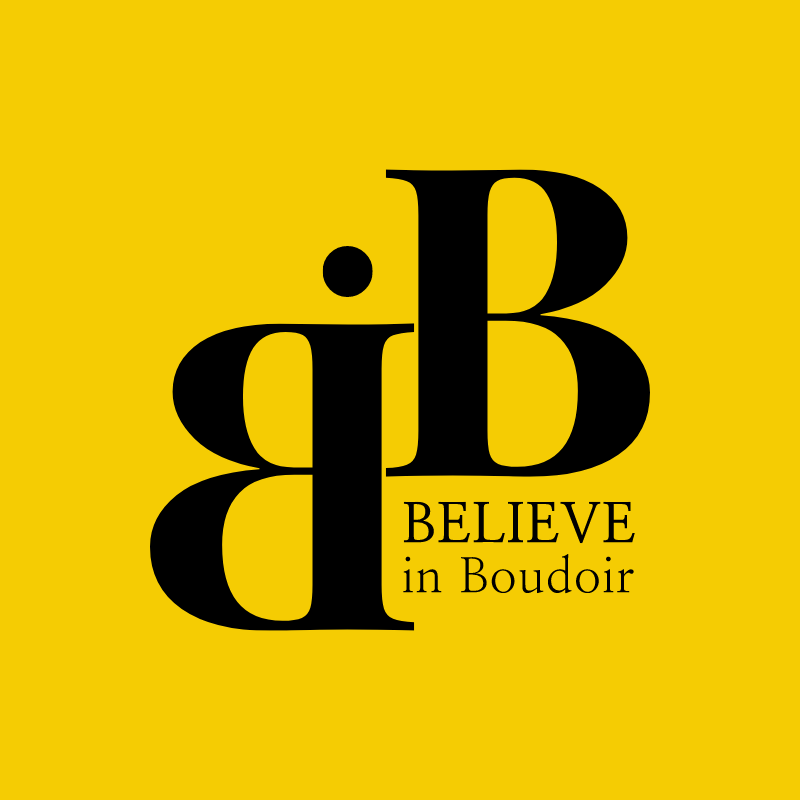

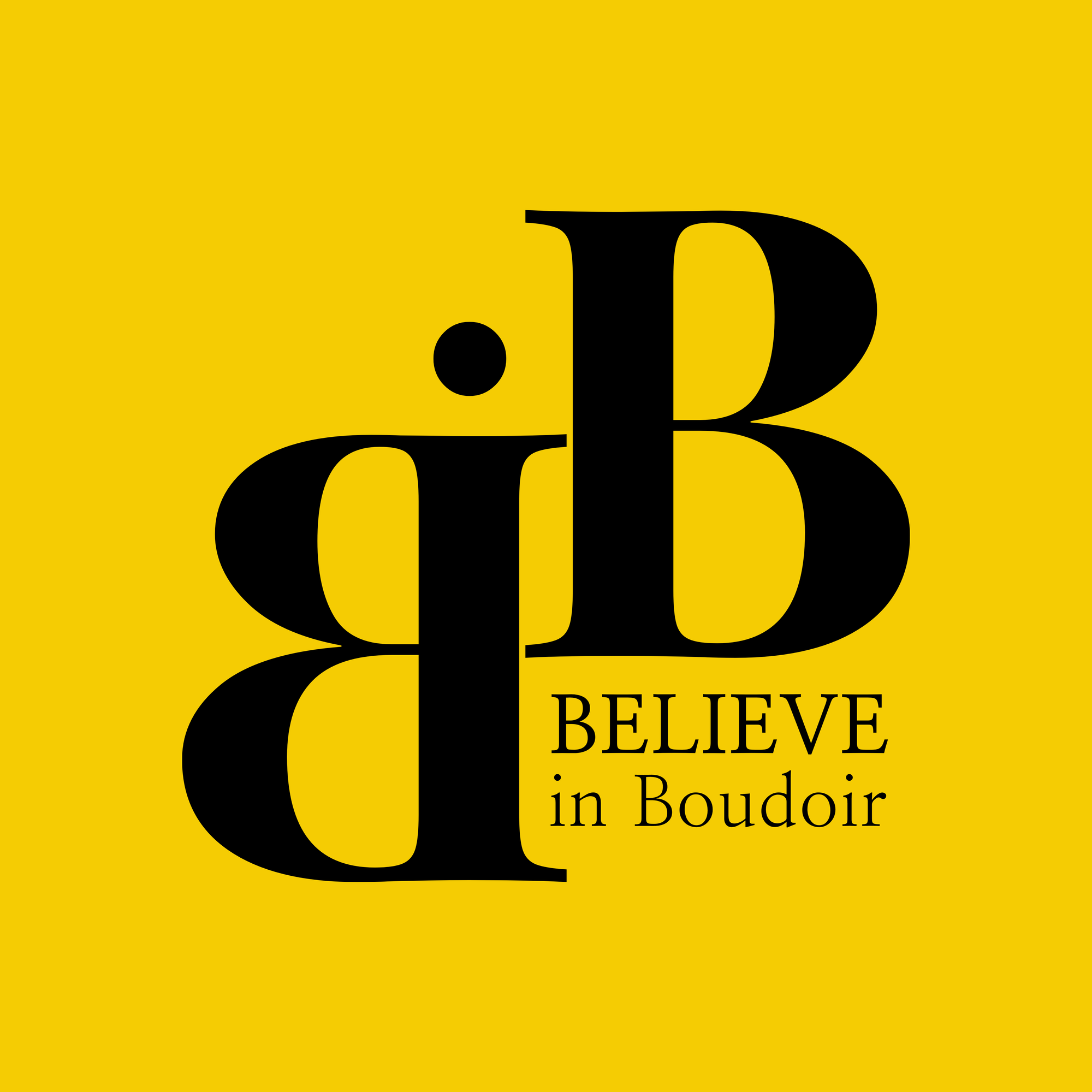
Photographing Male Nudes with Style and Respect

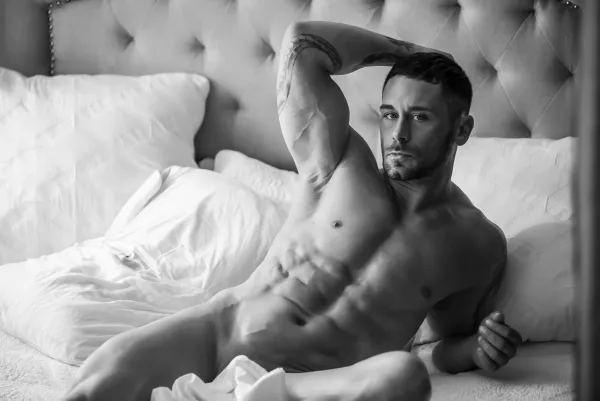
What really unfolds behind Yuliya Panchenko’s lens during her male nude photography sessions? It’s a question that sparks curiosity—from photographers wanting to refine their own practice to clients wondering what it truly feels like to be seen through her camera.
How does Yuliya get men to let go of control? To soften, open, and step into the frame without armor—just presence, rawness, and magnetism?
This blog gives you a rare peek behind the velvet curtain—not all of Yuliya’s secrets (those are earned), but enough to inspire and guide.
Bonus: Download your PDF guide to male nude posing ideas below—crafted to help you plan your next shoot with clarity and confidence.
While many men may be quick to undress, it's essential that you, the photographer, set the pace—especially if you're a woman behind the camera. Begin the session with fully clothed portraits, transition to shirtless, then to underwear, and reserve full nudity for the very end. This gradual approach not only builds trust and comfort but also allows for a natural artistic progression while keeping you firmly in control of the flow.
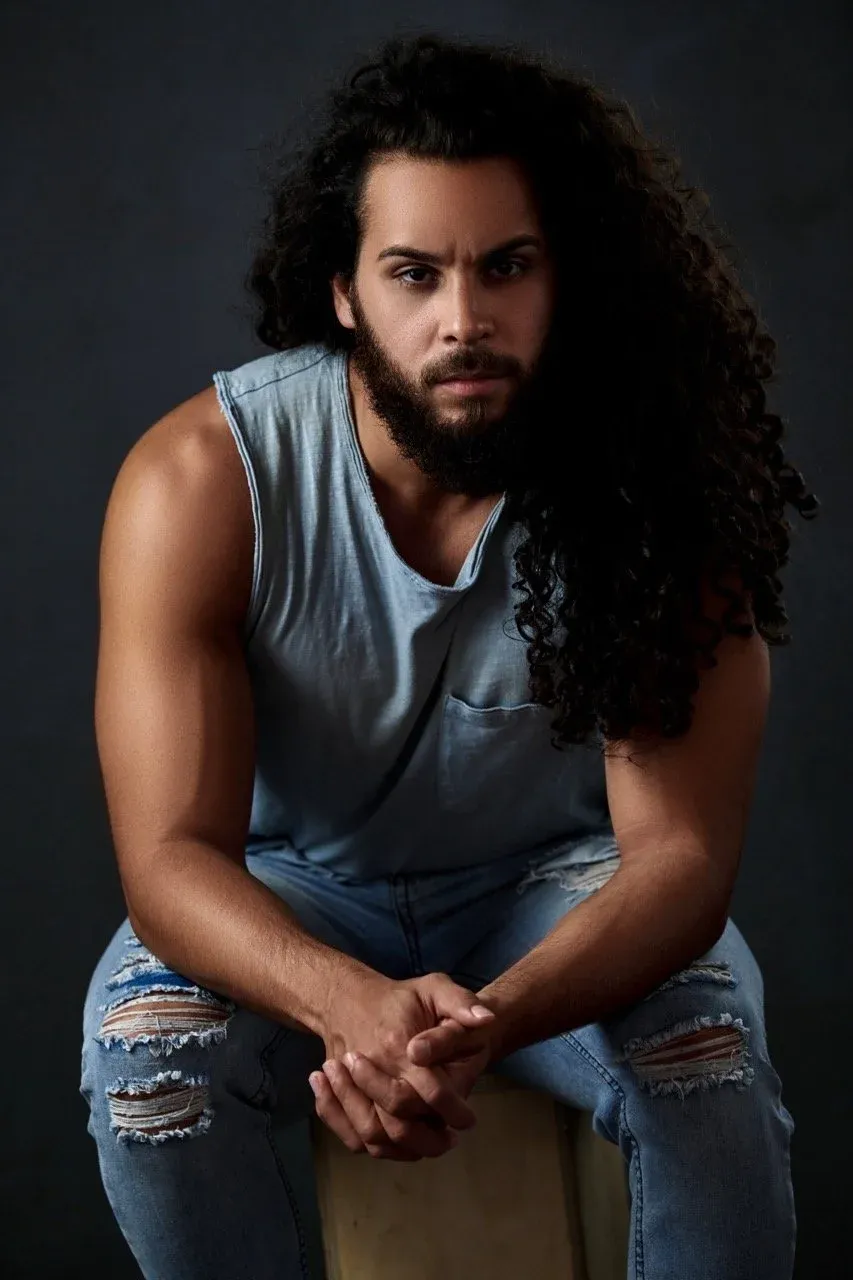
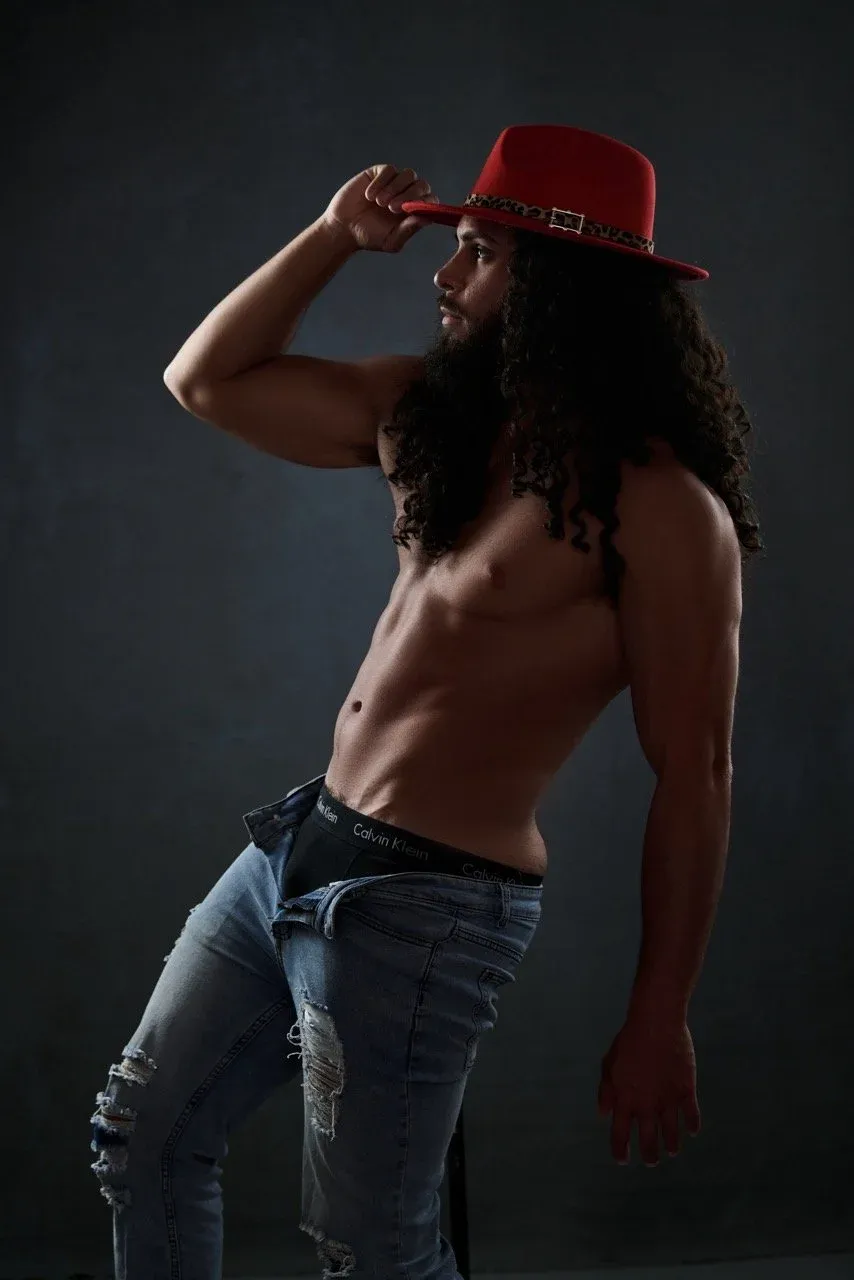
Phase 1 & 2: Portrait and Shirtless Portrait Sessions
No flirting. No innuendos. Period.
Even a casual joke or a glance held just a little too long can shift the tone from creative to uncomfortable. As the photographer, it’s your responsibility to keep the space focused and professional at all times. The moment the model questions whether this is a photoshoot or something else, the trust is broken.
Arousal is a biological response—not a compliment. Clear, firm boundaries protect both you and your subject. Even a well-meaning “you look great” can feel inappropriate when someone is completely nude.
So stick to this mantra: project art, not attraction.
You're the creative lead—not a romantic participant. Maintain composure, stay intentional, and treat the session with the respect it deserves. Think like Yuliya—confident, focused, camera in hand like a tool of artistry, not a prop for attention.
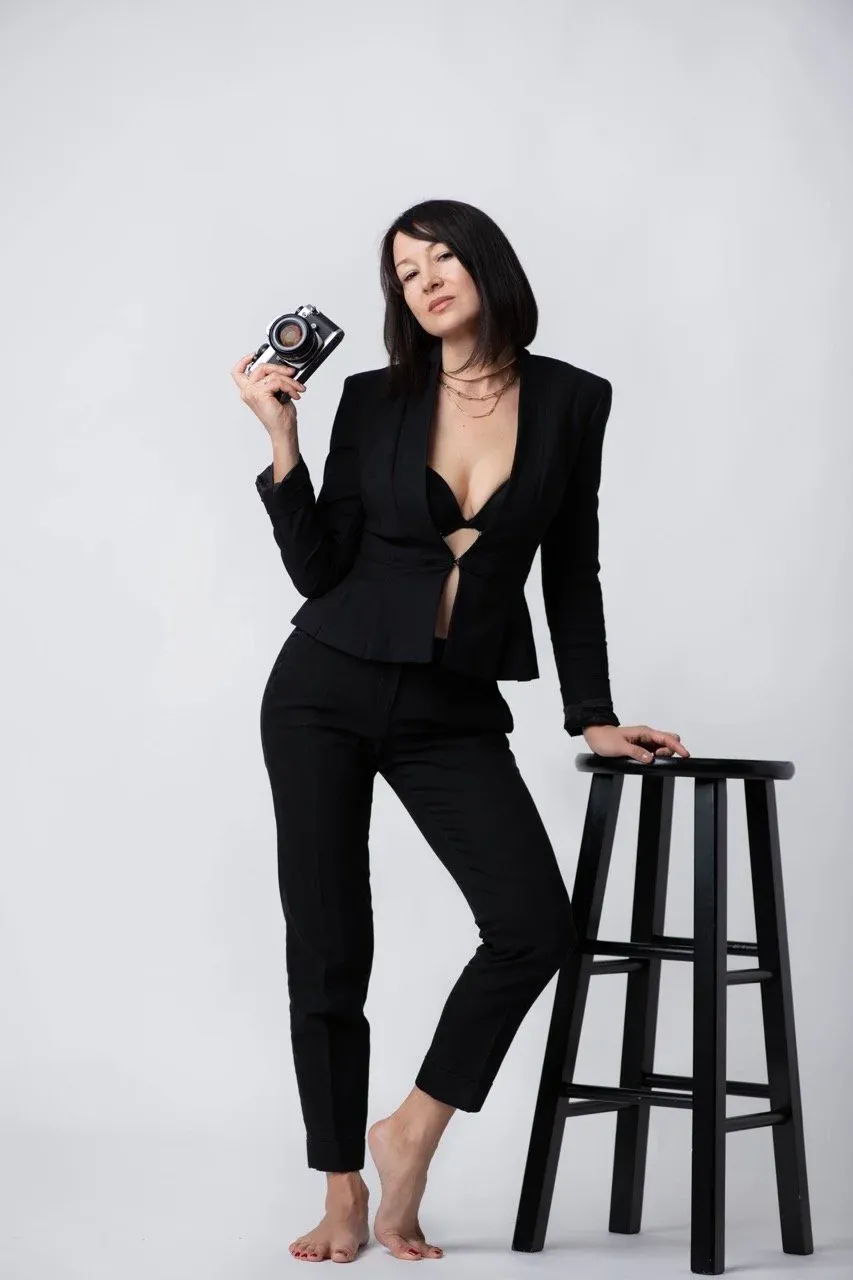
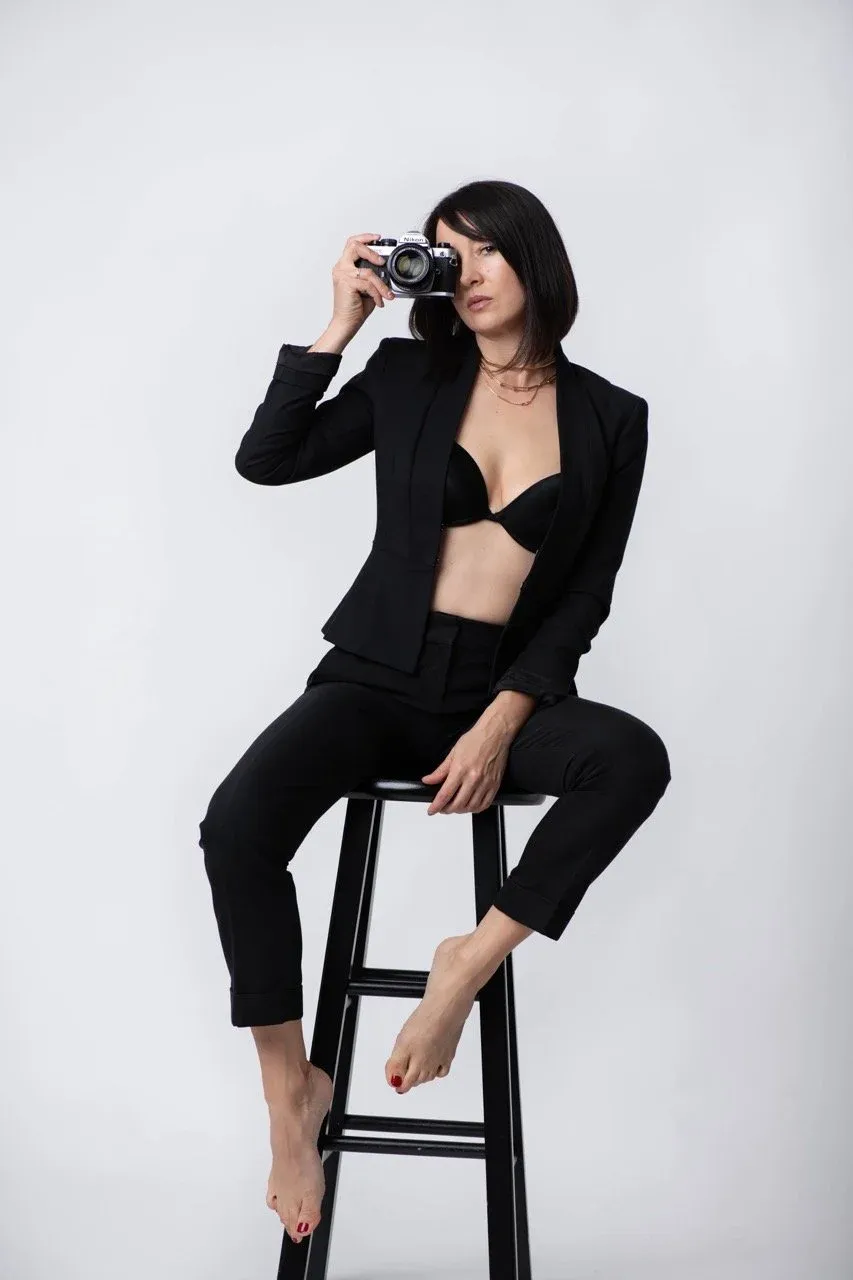
Paraphrased Content:
Unless the session specifically calls for full-frontal artistic nudity, keep the subject's private areas discreetly concealed in a way that feels natural and respectful. You can do this with:
What you shouldn’t do? Ask your client to stay fully nude while you’re adjusting equipment or checking settings. That kind of pause—naked and not actively being photographed—can feel incredibly awkward and exposed.
Always offer a robe, towel, or something for them to use between shots. Help them feel secure when the camera’s not on them.
Being photographed nude is a vulnerable experience. Showing respect for that vulnerability by offering cover when needed isn’t just professional—it’s a basic and thoughtful standard to uphold.
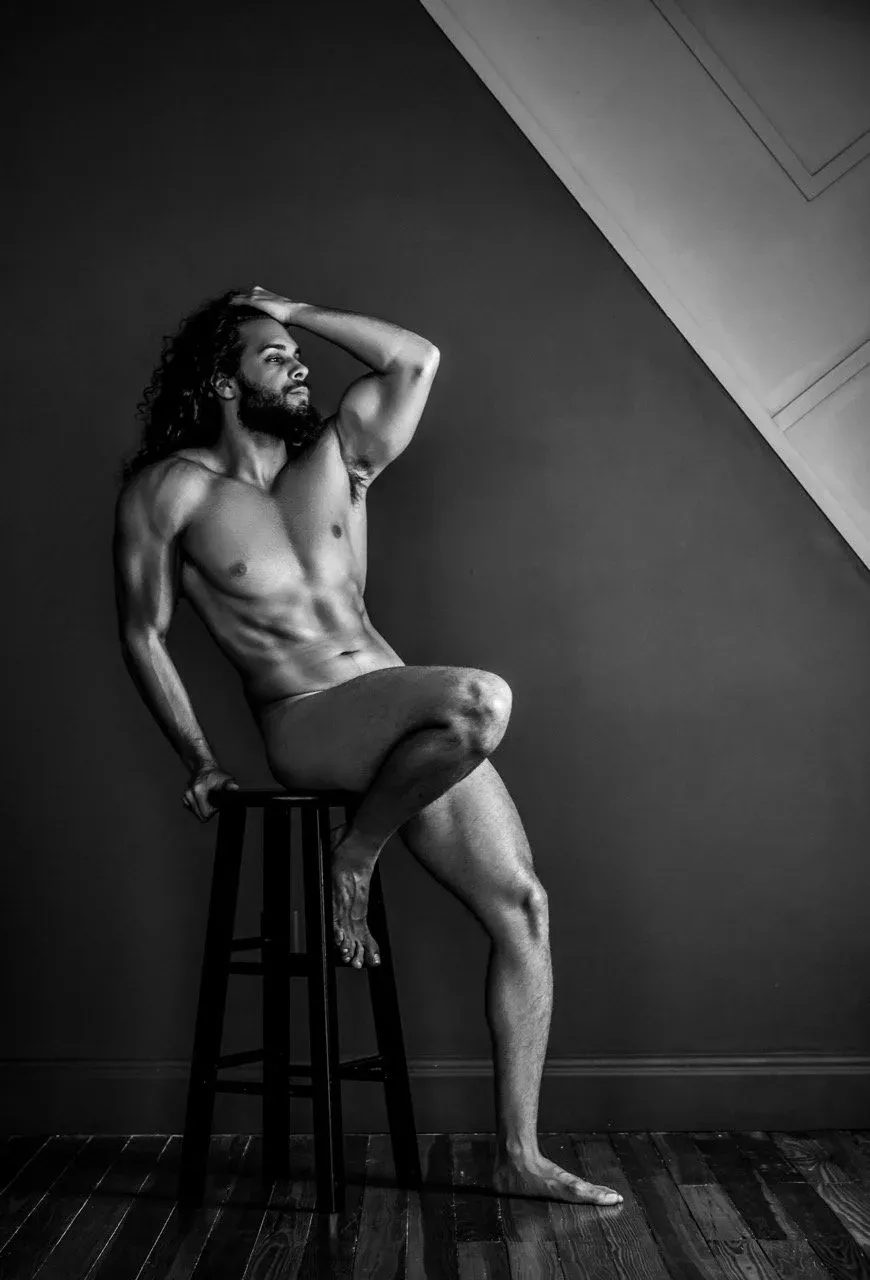
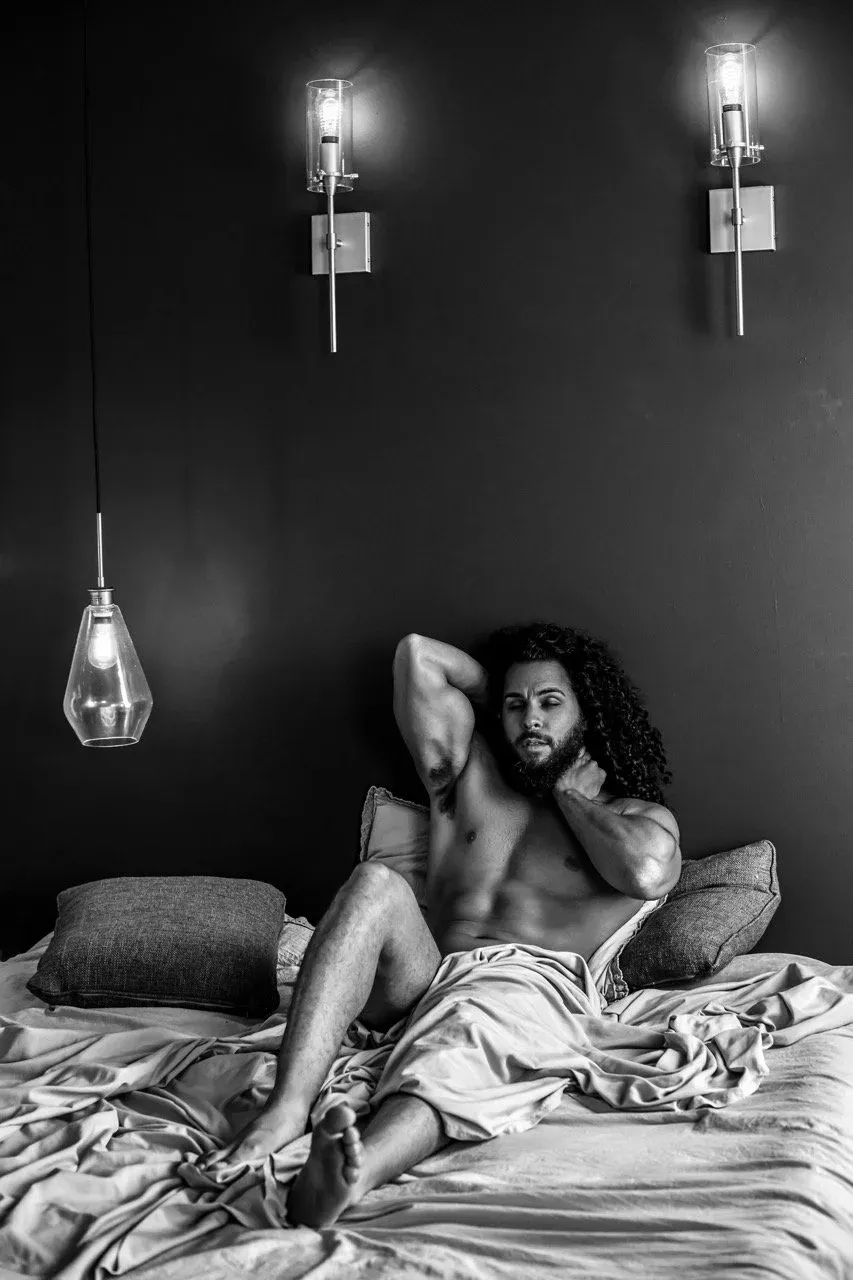
Men book nude sessions for different reasons, and your approach should reflect their individual goals:
Set your own opinions aside and focus on what your client wants to convey.
For masculine energy, go for poses with strong lines, symmetry, and structure. For sensuality, use fluid shapes, curves, and softer transitions.
Always remember: you’re not just shooting a body—you’re preserving a deeply personal message. These images are often intended for someone meaningful, so treat the moment with the respect and intentionality it deserves.
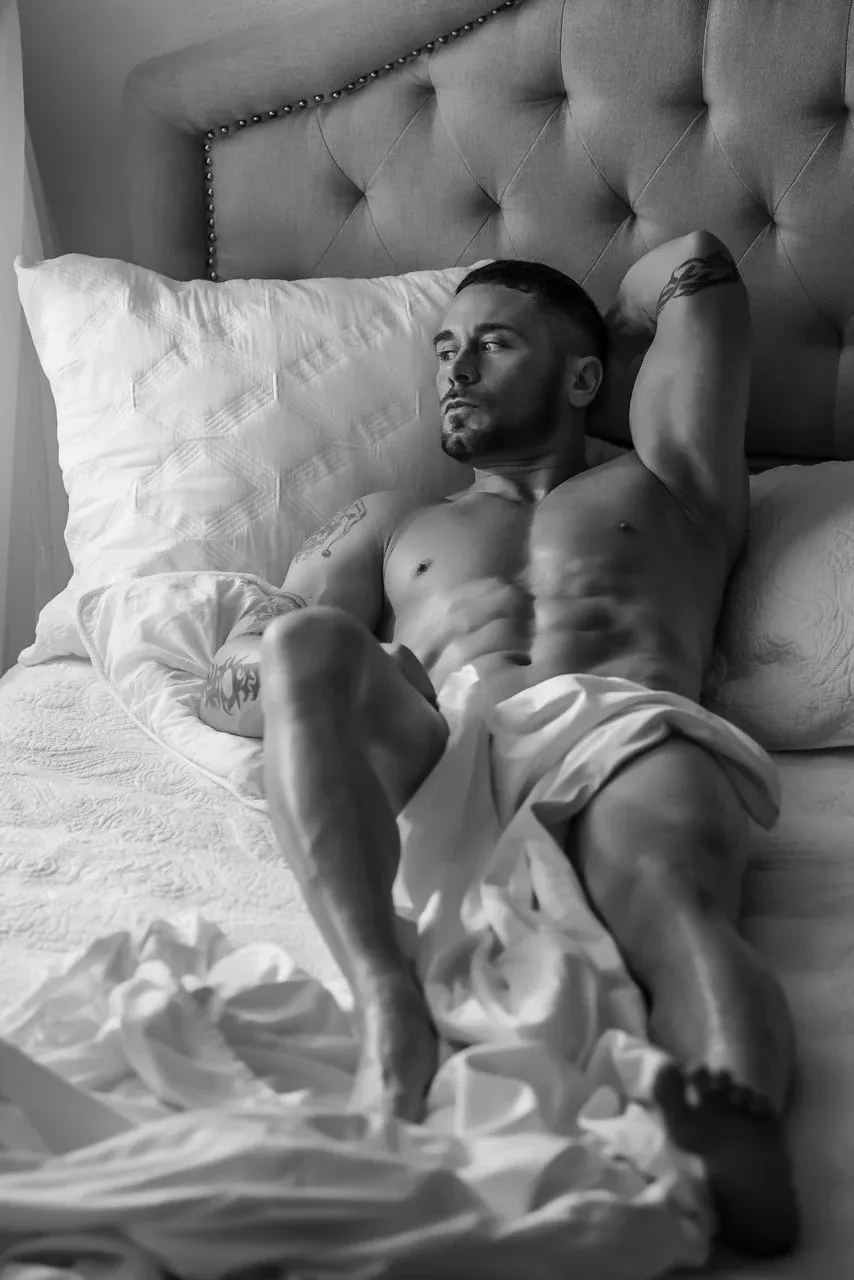
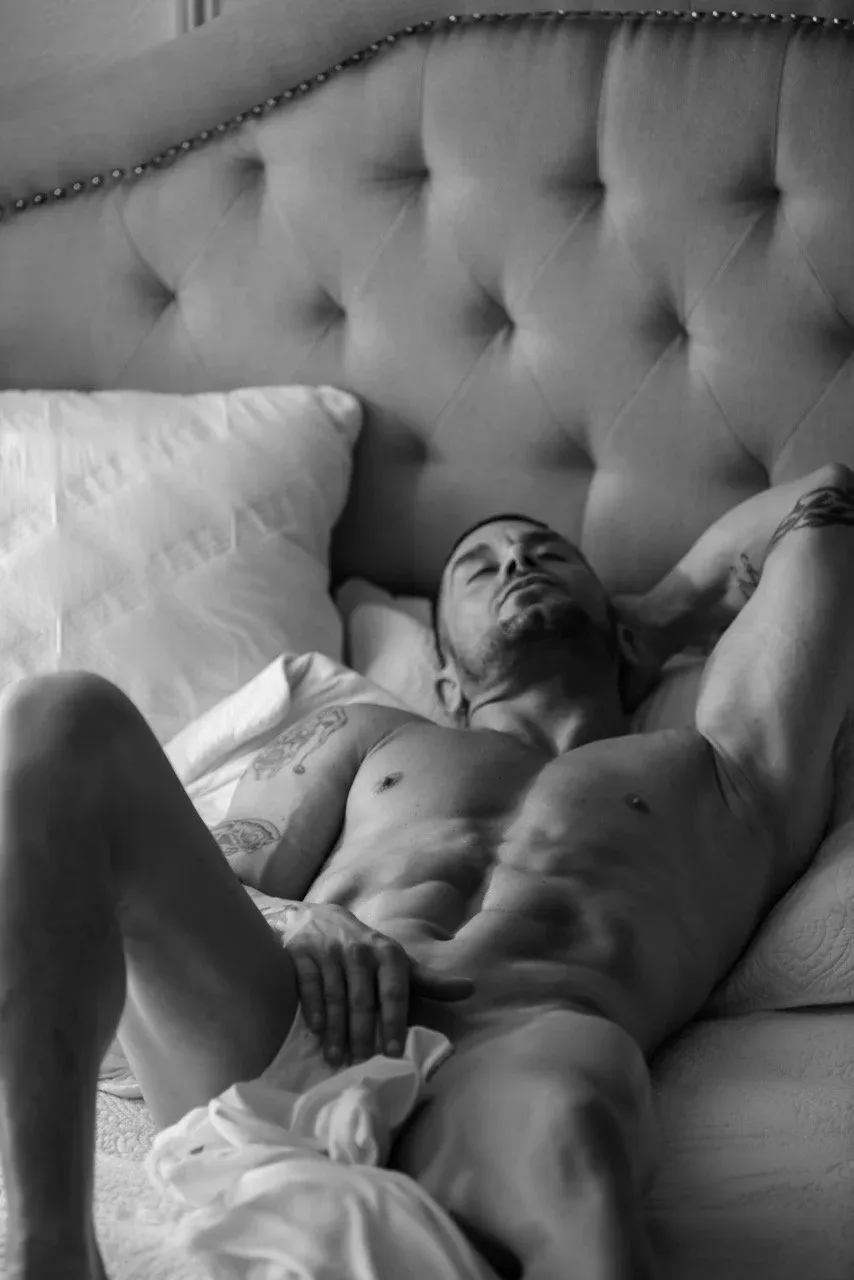
The lighting setup should always align with the emotional tone of the session:
Remember, lighting isn’t just technical—it’s emotional. It sets the stage for how the subject is perceived, making it one of your most powerful tools for storytelling.
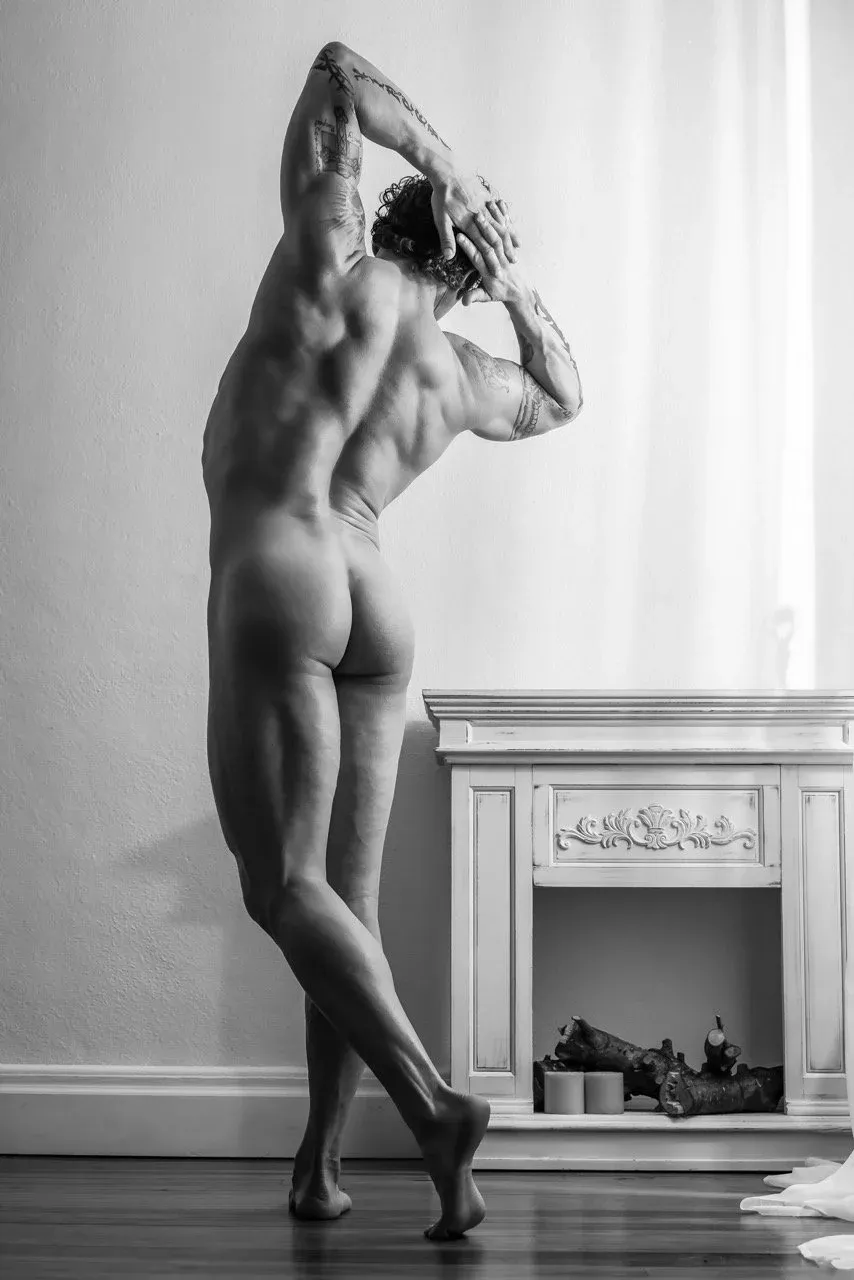
Body hair can sometimes obscure skin texture, muscle definition, and light reflection. That’s why it’s important to bring it up during your pre-session consultation.
Respectfully ask if the client is open to grooming options like trimming, shaving, or waxing—not for aesthetic judgment, but to enhance the visual quality of the final image.
Keep the tone professional and artistic. Emphasize that it’s about clarity, detail, and how the body will translate through your lens—not about altering who they are.
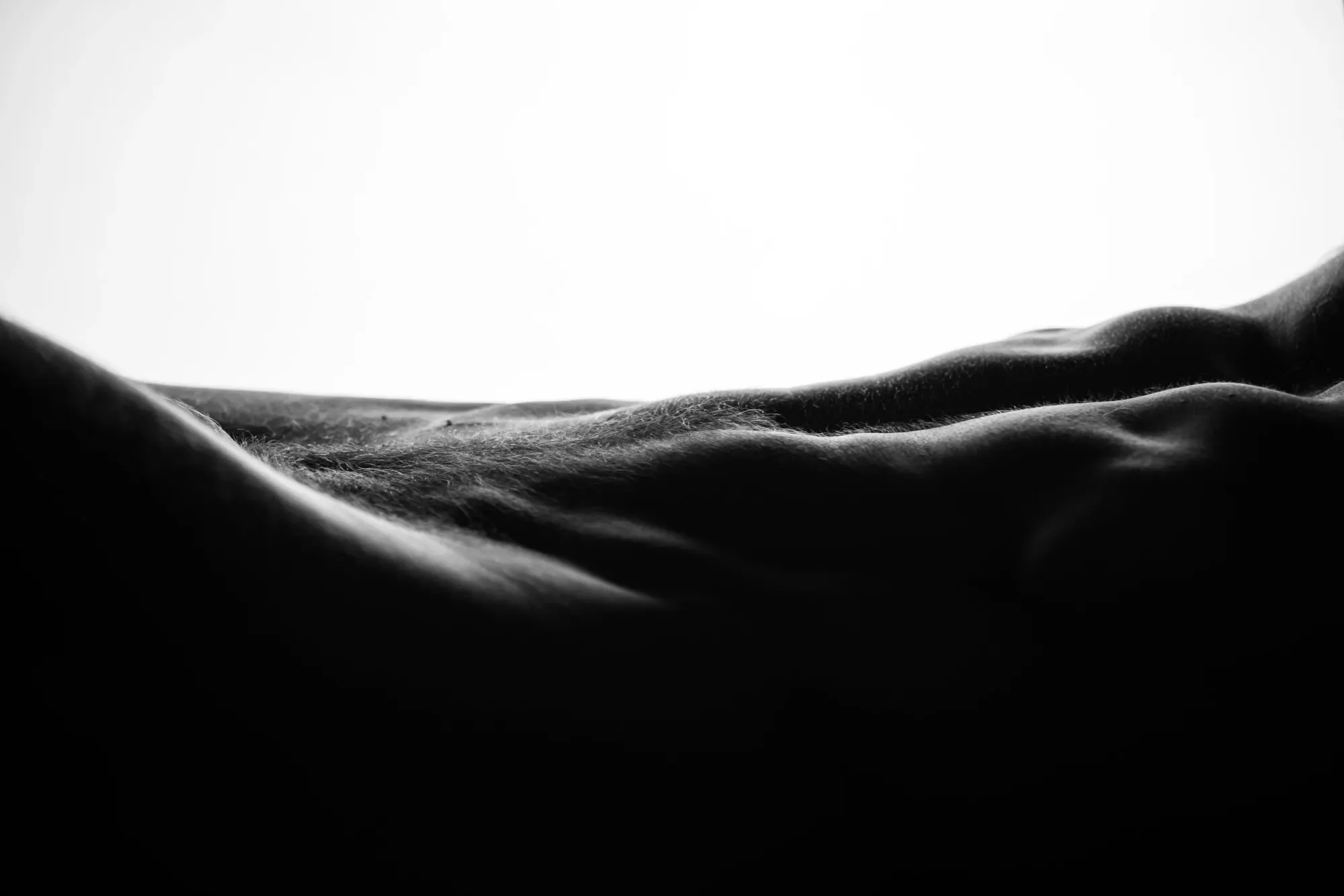
Most traditional boudoir sets feel too soft or feminine for male nude photography. Instead, opt for environments that align better with masculine or neutral aesthetics. Strong choices include:
The goal is to keep the environment intentional and aligned with the mood of the shoot—refined, bold, or raw—while letting the subject take center stage.
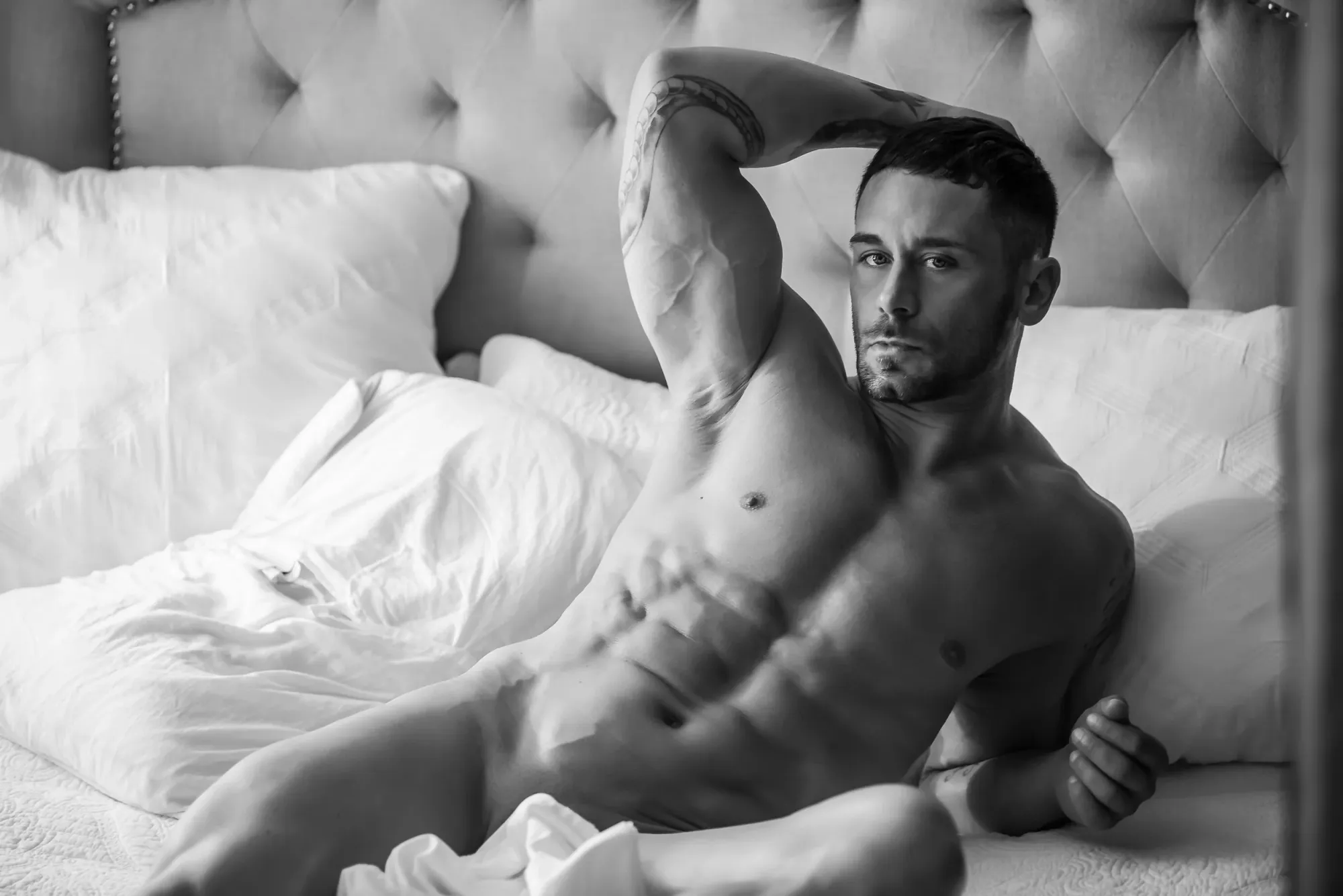
By this point, your client is at ease and the atmosphere is flowing—this is when the real connection begins. Step into your role with clarity and control, and guide him into subtly seductive poses.
Encourage gestures like a slow tug of the waistband, just enough to reveal the V-line and hint at skin without being overt. These small movements invite intrigue.
Eye contact becomes a powerful tool. Whether it’s a direct stare into the lens, a soft glance over the shoulder, or eyes cast downward toward his own body—each creates a different emotional tone, from bold to vulnerable.
Shooting from a lower angle helps elevate his stance, giving him a grounded, statuesque presence. Think of how classical sculptures are photographed—he becomes both subject and symbol.
Finally, focus on the nuances: subtle smirks, clenched jaws, soft eyes. He doesn’t need dramatic expressions—just authenticity. You’re capturing a feeling, not just a face.
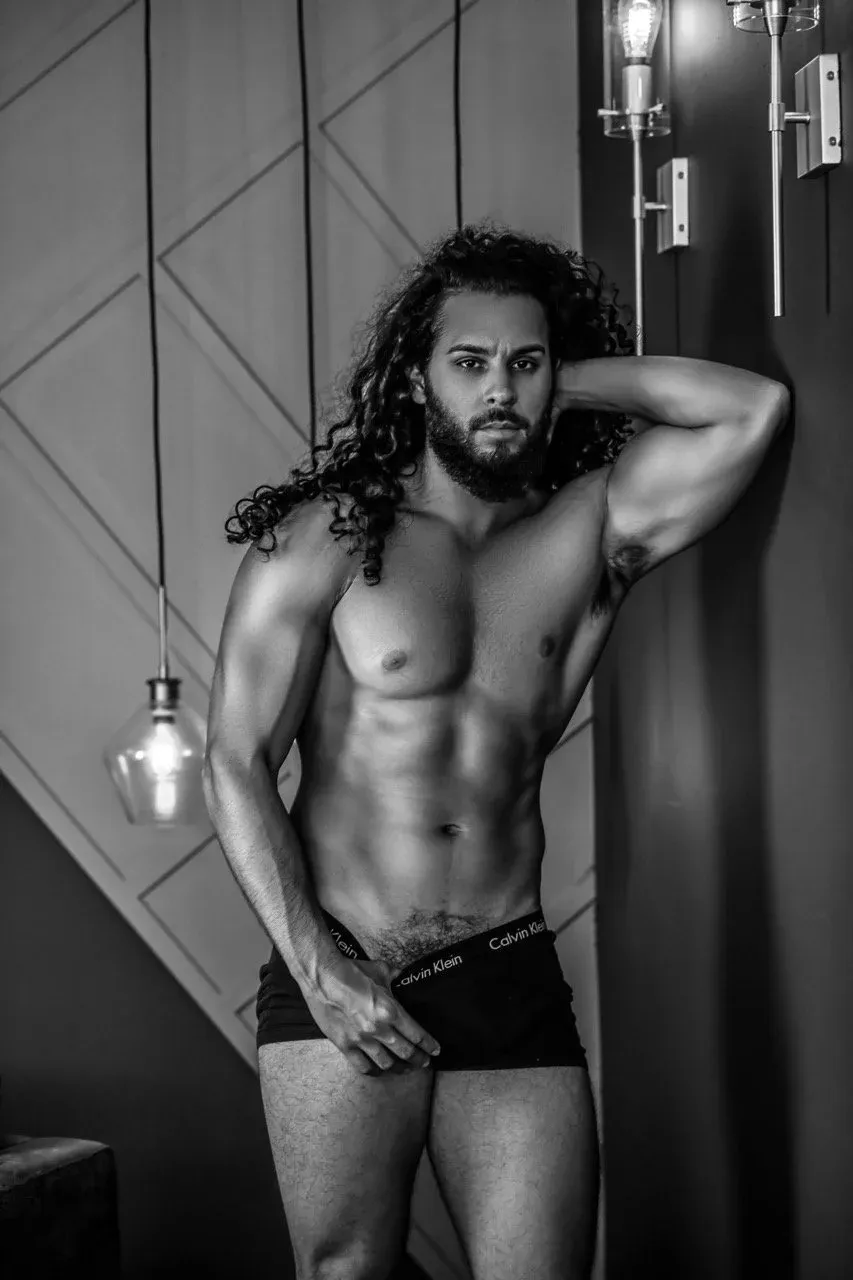
Seduction thrives in what’s implied, not exposed. True erotic power comes from restraint—those subtle, barely-there moments that invite curiosity.
Just like iconic “nip slip” moments in women’s imagery, men have their version too:
These intentional “accidents” create the strongest visual tension. Don’t spell it all out—use light, shadows, angles, and posing to suggest the story. Then let the viewer lean in and fill in the rest.
That’s where erotic elegance lives—in the space between what’s seen and what’s imagined.
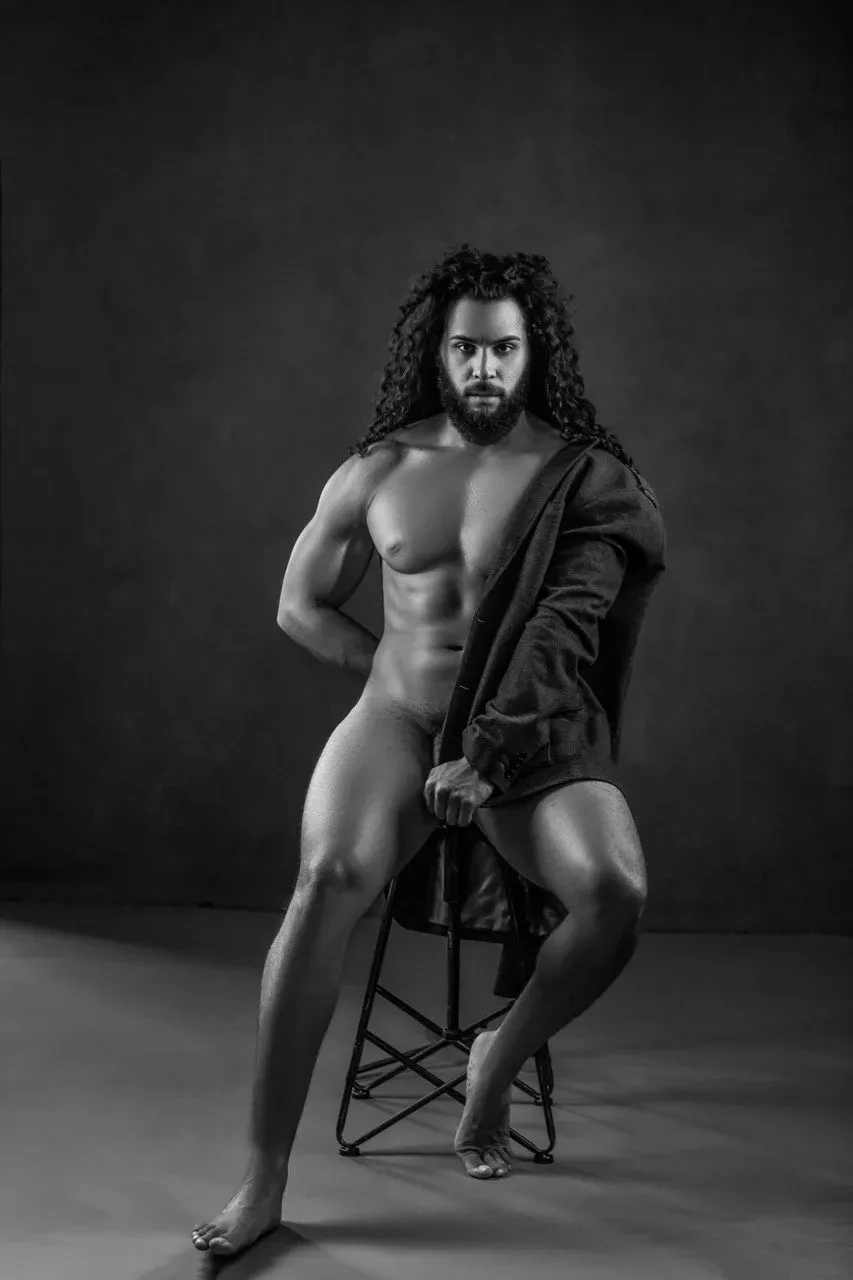
Dive into the full Male Boudoir Course on BIB TV, where Yuliya Panchenko breaks down her expert approach—covering posing flow, lighting setups, client communication, and the artistic mindset behind every shot.
Watch now on BIB TV: Male Boudoir Course
Learn Boudoir Photography on BIB TV